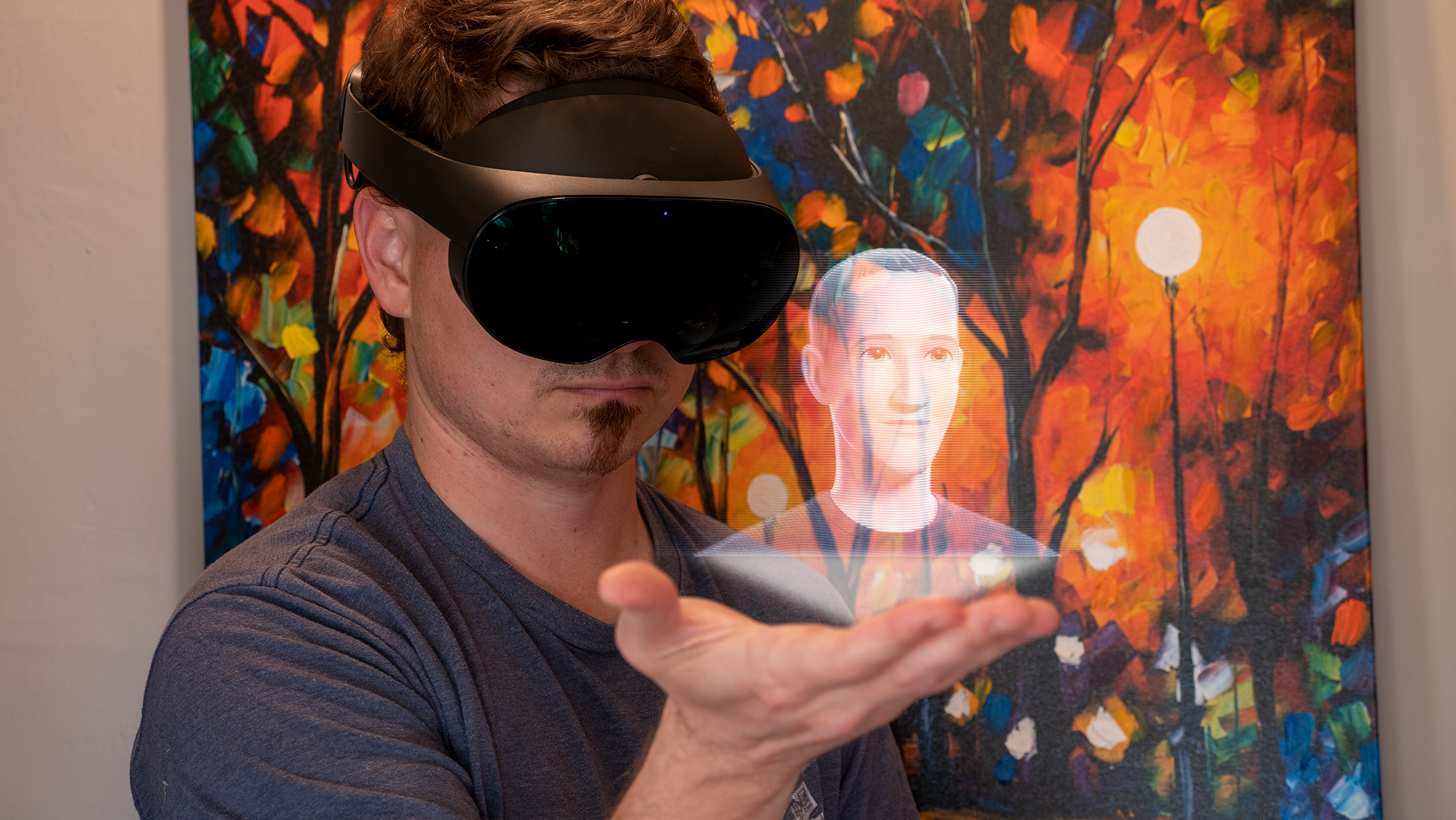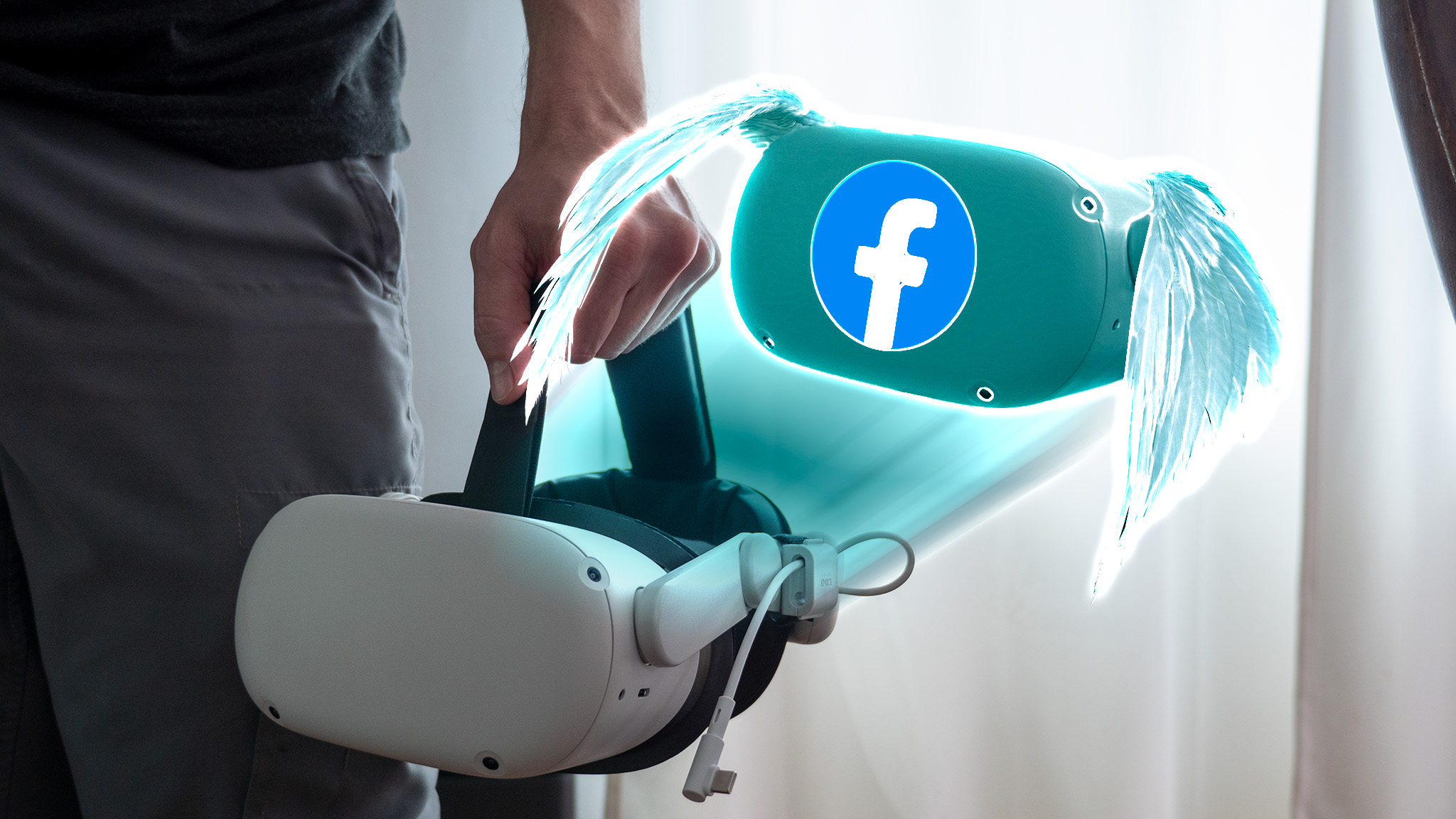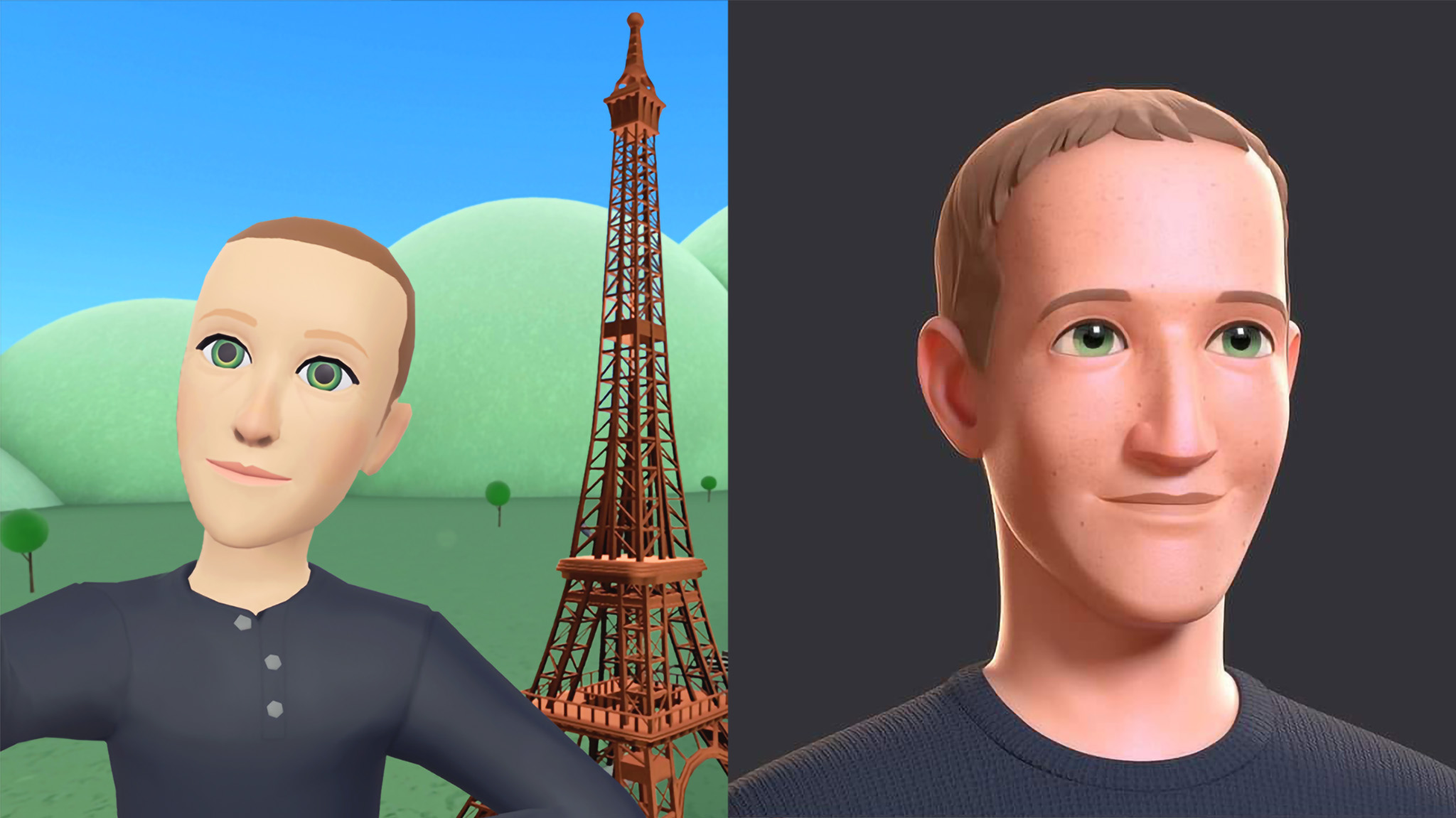If the metaverse wants to succeed, one man can't control it
Zuckerberg's toxicity is poisoning the metaverse conversation.

When Mark Zuckerberg originally announced Meta's plans for the Metaverse, it laid out a vision of an open ecosystem. One where people from all walks of life could participate in and be themselves, not constrained by the realities of their own personal economies, stations, or maybe even physical identities. It was sort of an Abe Lincoln moment in its own weird way.
Problem is, that's not what's been happening.
While Zuckerberg continues to opine about creating an open Metaverse (with a capital M), the company's own Horizon Worlds "metaverse" is about as closed an ecosystem as you could possibly get. Sure, Meta has created all sorts of tools and gives would-be creators lots of help and resources to get started, but there's no way to use industry-standard tools to bring other virtual worlds into the Horizon Worlds ecosystem.
It's important to note that Meta is playing the long game here. While Facebook's ad business continues to shrivel up and Meta's spending is making investors uneasy, Zuckerberg's plans to have Meta as the convergence point for all things Metaverse come with an asterisk that reads years or decades, not days and months. Unfortunately for many people working at Meta, the announcement that 11,000 employees were being laid off on November 9, 2022 — about 13% of its total workforce — could further impact the company's plans.
If nothing, that's another reason for Meta to open up the floodgates and let the community do what it does best: create.
The past can haunt you

The metaverse is a wonderful concept that's being poisoned by association with historically bad actors.
If we've learned anything from cancel culture, it's that your deeds in the past aren't forgotten or forgiven. For someone like Mark Zuckerberg who runs a company with over a decade of well-documented misdeeds, the past isn't something to be proud of and it certainly can't be hidden.
Most of us are well-versed in Zuckerberg and Facebook's past so I won't retread that info here. However, I will ask one question: is Zuckerberg the right person to take us into the Metaverse he so vividly envisions?
Get the latest news from Android Central, your trusted companion in the world of Android
The answer is a lot more complicated than a simple yes or no.
To get a bit more insight on this, I sat down with Rolf Illenberger, the CEO and founder of VRdirect, a company that specializes in getting companies onboarded with their own metaverses. VRdirect currently works with companies like Siemens, Nestle, Porsche, and Deutsche Telekom to name a few.
To get people and companies to buy into the metaverse concept, you have to sell them on the idea that investing in the concept will eventually return a profit. Whether that profit is more productive employees, bigger margins when making products, or just more market interest in existing products is entirely dependent on the situation.
And while Zuckerberg and Meta have proposed a brilliant mix of the real and virtual worlds together in a very futuristic vision, that vision ignores the tumult these two entities have had in our society over the past decade or so.
As Illenberger puts it, "it's a bit unfortunate for the whole Metaverse topic that it's so closely related to such a controversial person that Mark Zuckerberg really is."
The metaverse is a wonderful concept that's being poisoned by association with historically bad actors.
I had surmised that rebranding Oculus could potentially erase the bad vibes the company made with PC VR enthusiasts over the years and, while it remains to be seen if that will be successful in the long run, the same baggage is being carried over to the Metaverse full stop.
Illenberger notes that "Mark Zuckerberg controls the company and has decided he has to take the risk for this metaverse push. But we as a society, and especially the US regulators have let this happen, that these companies, these tech companies, have become so powerful that there's almost no competition to them. And my hope is that in the metaverse space we will have competition at least among the competing ecosystems."
Hopefully, this company does not own the next technology era and then, you know, controls that, because that would not be good for us all
Meta's stock value has taken a turn for the worst for many reasons, and while I still think the headwinds against Facebook's ad services are the biggest real factor for the decline in the company's worth, the other part also has to do with investors losing faith in Zuckerberg as a leader.
Because, if you really consider the concept of an "investor," it means someone who is willing to hand over their money for a return in the long run. Investing isn't meant to deliver an immediate return and, I think with the right leadership, Meta could continue to offer a coherent vision of the future of the metaverse (lowercase m) without Meta as the sole controlling entity.
After all, Google doesn't really control Android. It offers an open-source operating system with the buy-in that companies who use Google services on their phones will be able to woo buyers in because they can be assured that all their favorite apps and accessories will continue to work with their new devices, even if those devices are made by a different company.
"Hopefully, this company does not own the next technology era and then, you know, controls that, because that would not be good for us all" Illenberger warns, and I can't help but agree with him.
Is real improvement coming?

While Mark Zuckerberg talked about working on some kind of open metaverse in his keynote a couple of weeks ago, the reality is completely the other way around.
On the topic of Meta's construction of the Metaverse, Illenberger was pretty clear. "While Mark Zuckerberg talked about working on some kind of open metaverse in his keynote a couple of weeks ago (at Meta Connect), the reality is completely the other way around. What he really means when he's talking about "openness" are the partners Meta is making to integrate with their ecosystem. Adobe, Microsoft, Zoom, etc."
Illenberger is referencing the announcement back at Meta Connect nearly a month ago (October 11) where Zuckerberg announced that Horizon Worlds will soon allow Creative Commons licensed content to be imported from the popular Sketchfab service.
That move will drive two hugely important changes into Horizon Worlds for future use cases: standardized model importing, and better graphics.
Right now, Horizon Worlds has been mocked for a number of things including poor visuals, avatars without legs, and a small userbase despite the app's free cost of entry. Much of this is being fixed but, given the amount of money the company is spending on it, some say it's too little, too late.

People don't want to just be themselves in a virtual world where they can be anything. The irony is that this vision is exactly what Zuckerberg laid out last October.
In short, Meta hasn't done enough to make Horizon Worlds compelling in the same way Rec Room or VR Chat has. Ironically enough, both of those apps come from two different trains of thought. While Rec Room uses the same closed ecosystem model as Horizon Worlds — that means everything you see is built using in-game tools — VR Chat allows users to import standard models and objects from Unity sources.
"Currently, businesses need a standardization platform like VRdirect because companies like Meta and Pico are focused on solely supporting their own products instead of actually developing an open ecosystem," Illenberger notes.
For VRdirect's clients, a standard tool that can create content to be used on multiple platforms is the most important goal. After all, there's no telling if they'll continue to use Meta headsets in the future or if they might switch to Pico or Lenovo at some point in time.
I've been an open critic of Meta's ambiguous app store policies and have said the company needs to introduce far more transparency before it plans to expand further. Illenberger agrees, saying "right now, it's a "lucky game" to pass through the app store. There's no documentation, no one to call. You just get accepted or rejected and you have no idea what to do."
This sort of ambiguity makes people wary of investing in the ecosystem — whether that means hardware or software — and, ultimately, poisons the well for Meta's other ventures.
Likewise, Horizon Worlds needs to work on expanding beyond the borders of Meta's own headsets and in-app tools. People don't want to just be themselves in a virtual world where they can be anything. They want to be Master Chief. The Iron Giant. Princess Peach. Maybe even a cat person, if that's what makes them feel better.
The irony is that this vision is exactly what Zuckerberg laid out when he announced the company rebrand and subsequent Metaverse vision last October.
Partners, not partnerships

Exclusives and partnerships are important, but so are partners.
Partners and partnerships might have the same root word at heart, but they have two very different meanings. A partnership is a form of business, usually pertaining to some kind of legal entity or agreement. Partnering, on the other hand, is a method of running a business.
At Meta Connect last month, we saw Meta begin an important partnership with Microsoft, one it hopes to leverage in convincing businesses to buy Meta XR hardware and, ultimately, join in on the Metaverse.
In a way, this is a great move for Meta. As Illenberger notes, "the partnership that Microsoft just announced at Meta Connect is really a game changer. I would have bet that Microsoft would release its own VR headset, but I think that's off the table. I think they skip the VR headset part and they are now accepting Meta as basically the key platform in this new VR Metaverse space."
There's little doubt that partnerships like this one are incredibly important, especially when you're trying to build a hardware ecosystem and need to convince people to buy into it. After all, this is why Microsoft is trying to buy Activision-Blizzard. It's why Sony has so many first-party studios developing games exclusively for the PS5, and it's why Meta's Oculus Studios group of VR developers continues to grow.
None of these players wants to be the Symbian or Windows Mobile of the metaverse world.
Exclusives and partnerships are essential, but so are partners.
"There's a huge opportunity to get this right and lots of companies are vying for it. Meta, ByteDance, HTC, Lenovo are all trying to persuade the enterprise world to adopt their technologies. None of these players wants to be the Symbian or Windows Mobile of the metaverse world," Illenberger states.
That last part is exactly why companies like Meta need to be providing opportunities to partner with their own users. No one wants to feel like they're being controlled by Facebook, Meta, Twitter, ByteDance, or some government of a foreign country (or their own). They want to feel empowered to build their own lives and their own things.
Meta has an opportunity to do this but it seems like they are continually squandering it by trying to build a virtual world only they control. Meta, it's time to open the gates. If you want a successful metaverse, you can't be the sole controller of its fate. You have to let it free to grow on its own but keep incentivizing creators to stick with you, even though they have a choice not to. That's how you win.

